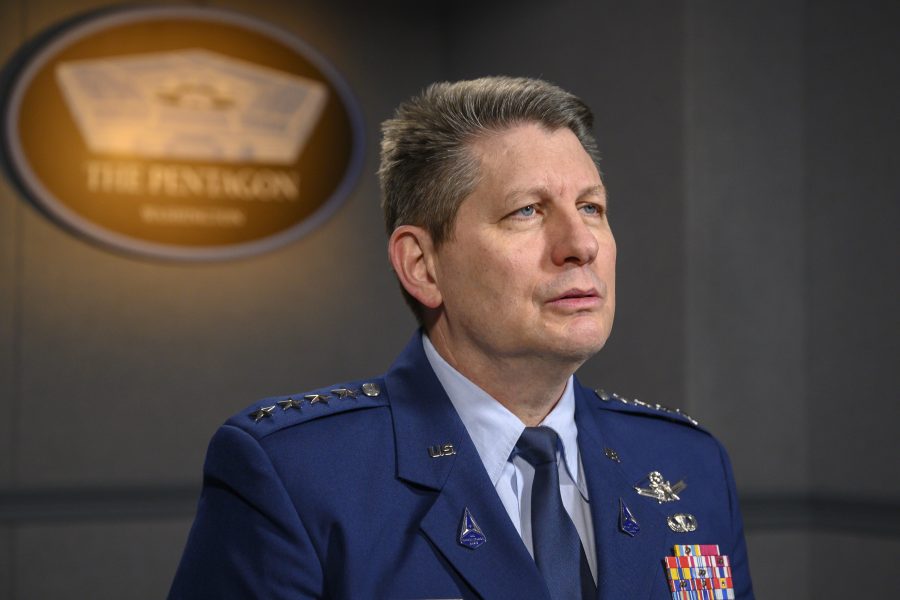The U.S. could lose its ability to effectively operate in space without action to lower the number of objects in low Earth orbit, top U.S. generals said Sept. 28.
Vice Chief of Space Operations Gen. David D. Thompson said his biggest concern was not debris from objects currently in orbit but the growth of satellite constellations. Older satellites, however, are not going away, which could lead to a possibly “unmanageable” number of large objects in Earth’s orbit. In addition, the international community has yet to develop a clear framework for handling space debris, deconfliction, and de-orbiting defunct satellites. According to Thompson, without explicit rules, space will be too contested to operate in safely. The U.S. military fears that its space operations, such as the GPS satellites used for everything from targeting to timing, would be disrupted.
“If we continue on the current pace and trend and don’t put effective standards and norms and controls in place as a community of nations, we will get to the point where it becomes difficult to operate and manage,” Thompson said during a Defense One virtual event.
The U.S. currently tracks around 40,000 objects in orbit. Thompson said that number “will at least double in the near future.”
Some of the issues with objects remaining in orbit are practical. A core function of a satellite is to stay in orbit, not leave it, noted Army Gen. James H. Dickinson, the head of United States Space Command.
“From a technical perspective, it’s not as easy as you think,” Dickinson said during an address at Fort Sill, Okla. “It’s not like bending over and picking up a piece of trash. It’s in three-dimensional space. In theory, things are moving at 17,000 miles an hour.”
Dickinson said many commercial companies and some governments are interested in achieving better means of de-orbiting satellites. Still, the larger question was not technical but one of responsibility for the cost.
“The real question is who pays for it,” Dickinson said. “Would that be a DOD task or would that be the Department of Commerce or United Nations?”
The U.N. has a body looking at responsible behavior in space. The U.S. is seeking to lead on the issue by pledging it will not conduct kinetic direct-ascent anti-satellite tests and urging governments to create clear norms for space operations.
Dickinson suggested that the international community should treat space the same way it does shared environments inside the Earth’s atmosphere, such as pollution in the air and oceans.
“We’re going to have to address the problem, just like we have in other domains,” Dickinson said.
Thompson said issues such as the proliferation of objects in orbit, the growing threat posed by China as an adversary, and the rapid growth in China’s military space capabilities have largely resolved the Space Force’s need to justify its existence as an independent service to parts of the government.
“They weren’t sure now was the right time,” Thompson said of some critics. “Now the message is both from those who were believers in the beginning and even those who are skeptics—they say, ‘You know, I was a skeptic in the past, but you all are doing the right thing. This is a good move.’ Increasingly, we do not have to convince those folks.”
However, others remain unfamiliar with the Space Force but have had exposure to the other services.
“They don’t understand what the Space Force is,” Thompson said. “But that’s an educational problem that, with time, I think will improve.”
Of course, the challenges that exposed the need for a Space Force are also the ones the service has to confront. The Space Force has begun raising the concept that the domain will become a true theater of war in the future.
“We operate space systems in a relatively benign environment to provide information to the rest of the joint force, to our national leaders,” Thompson said. “Now we’re going to have to change that approach to not only continue to do that, but think about how we would do that under threat, under attack, and perhaps in a conflict.”
